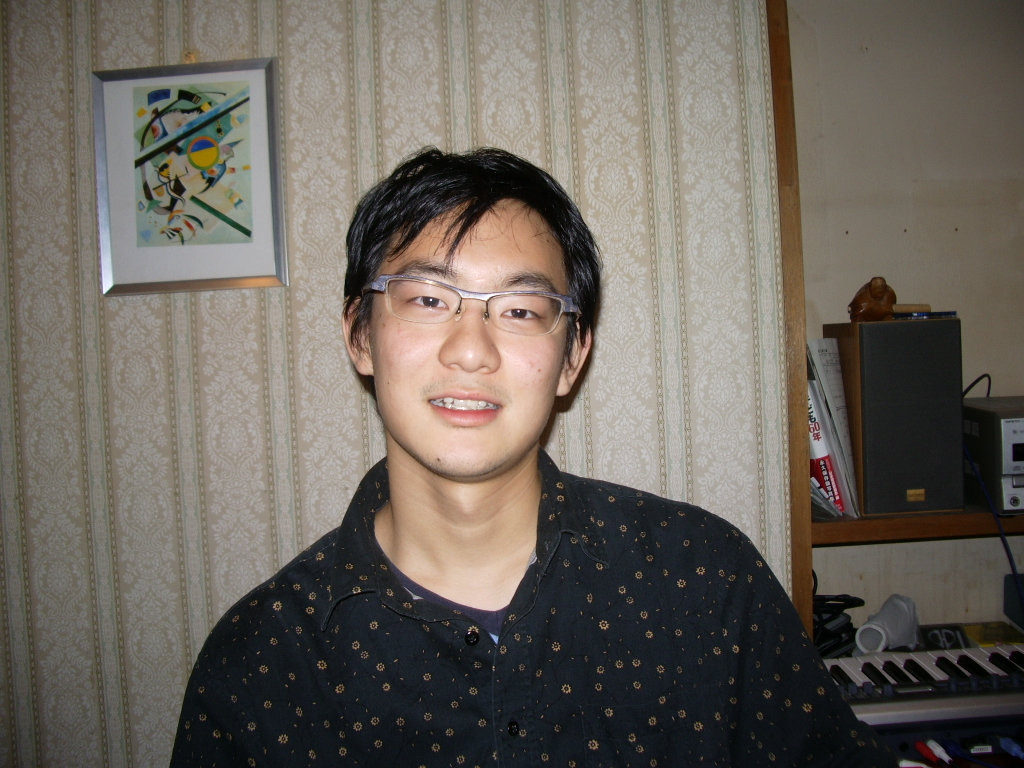By: Simon Leff
Michiru Aoyama, like many artists, is just a regular guy. He begins his day close to dawn, brushes his teeth, goes to work, unwinds with an evening stroll, and is in bed by a reasonable hour. There are no frills, rarely any deviations, only a temporal order that drones from one day to the next. Yet, as with most cases where a domestic motif appears slightly too subtle, Aoyama’s lifestyle possesses one little caveat: each day, he manages to release an 8-track record of entirely new work.
Anchored by a guitar, synth, and a whole world of FX, Aoyama’s compositions catalog the artist’s navigation through the vast soundscapes of the ambient genre. Each day’s new 20-minute and 28-second project is like a journal entry describing his present disposition through a meticulous layering of one dilating harmony after the next. This abstruse ‘album a day’ endeavor began in late 2019 when Aoyama realized that creating a persistent routine would be his only path forward in the industry. If he wanted any chance of breaking through the algorithms that shroud the passion of most ‘amateurs,’ he would have to flood his profile with an unceasing disposal of fresh release. “Perfect” and “revise” quickly became ingrained as infinitives, motivating the evolutionary progression of his sound but never taking complete hold of the designs of the present.
Aoyama’s inclination toward production rather than mastery is rare for a musician. Very few artists are willing to let a project go public before they are sure it is ready–so much so that in the cases where it is leaked prior to approval, many abandon it altogether. So, when someone like Aoyama can crank out an album nearly every day for four years, it is sure to raise some eyebrows.
In a post on IDM forums, an online platform for musicians to collaborate, a user complained that Aoyama’s prodigious output was only possible because he produces ‘white noise for babies.’ They continued by saying that if he worked in a more complex genre like ‘Breakcore’ he wouldn’t be able to get away with the ‘AC/DC M.O’ of making albums that all sound the same.
Tim Hecker, a Canadian Ambient producer with over 200,000 monthly listeners on Spotify, disagrees. When interviewed by the New York Times, Hecker pointed to Aoyama’s work as a testament to the creativity and freedom that is otherwise absent in the industry. While he, himself wrestles with his sound until it sometimes becomes too “overwrought,” he takes reassurance in knowing he can wake up each day to a new Aoyama release; to him, its constant trickle provides the same comfort as a cup of coffee.
Besides, even if Aoyama’s songs lack the intricate telelogical elements that are sought out by fans of both obscure and popular music, there is something uniquely satisfying and homeopathic, about their oblique nature. Closing your eyes and listening to an album can allow your mind to transport itself to a brief spell of quietude. There, as each song passes with a concise new progression of tautly plucked chords and ambling synth melodies, you can relax into a moment free of definite perspective–this character, I feel, is further emphasized by the fact that changing the volume of a song alters its sound acutely. Finally, once you realize you have reached the unassuming end, you can again reenter the terrain you left behind, only now enjoying a lighter, more tranquil air.
The meditative quality of Aoyama’s music is in part responsible for his recent uptick in monthly listeners. Spotify has featured his work on calming-oriented playlists like “Late Night Vibes” and “Atmospheric Focus,” where his drone seamlessly molds into other contemporary ambient sounds. While ‘vibes-based’ categorization might leave a bitter taste for other artists, Aoyama is happy to be roped in with other placid sounds. In an article in the Guardian, he said he doesn’t care how people listen to or find his music–all that matters is that his “music evokes peace in people’s hearts.”
The relaxing nature of ambient music is why Aoyama pursued the genre, to begin with. When discussing his origin with Bandcamp, he described ambient as the perfect genre because it is completely beyond the human world. “There is no beat, so it is not danceable,” he said, “It is music that connects you to your environment. It is music that connects me with nostalgia. It evokes peace.” For Aoyama, “it is a world without negativity.”
Michiru Aoyama’s sound and ethic convey the workings of a stolid, contemplative, wise man.
As an artist, his work details the necessity of being grounded in the notion of your art and of allowing yourself to let go in cases of skepticism. Aoyama claims that “making music is like brushing my (his) teeth.” It isn’t something to be dreaded or ignored; it just needs to happen because it is a part of a routine. By listening to a series of albums, you can vaguely notice the frayed toothbrushes of his musical story and understand that an ideal evolves, so what is “perfect” never “is.” All Aoyama’s art and music need then is a meditative repose that peacefully carries on from one day to the next, never ceasing to be anything more than genuine.
